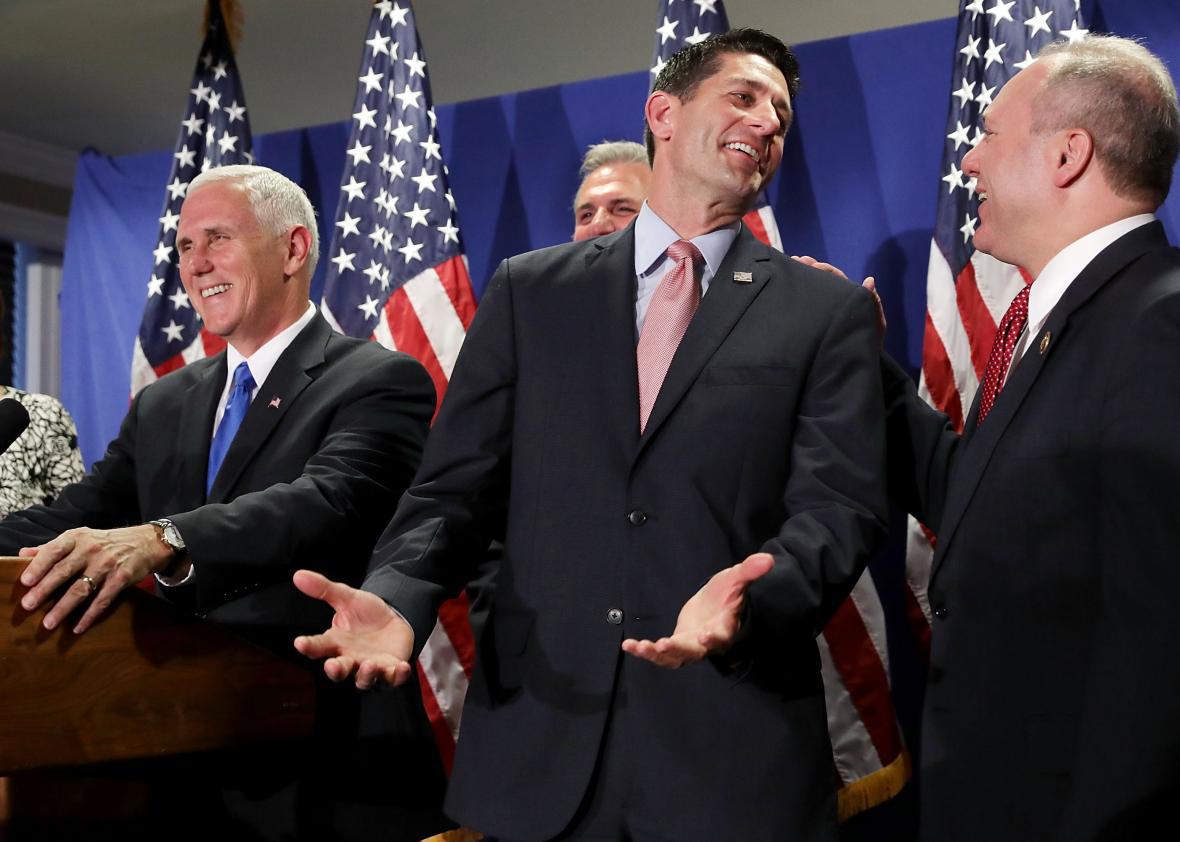My working assumption about Donald Trump’s tax proposal is that—as grotesquely regressive as its broad outlines are—its precise details don’t matter so much. That’s because Paul Ryan is still the GOP’s chief ideas man, and there’s little reason to think Trump would turn down whatever tax legislation the House speaker sends him. The Republican presidential nominee has signaled that he would like to aggressively cut taxes on businesses and upper-income households. Ryan has a blueprint to do it, which he released back in June. They might haggle a little over this or that, but there’s not a ton of daylight between the two men’s approaches.
With that in mind, it’s worth noting a recent analysis by the nonpartisan Tax Policy Center,1 which found that by 2025, 99.6 percent of Ryan’s cuts would go to the top 1 percent of taxpayers (credit to the Washington Post for pointing out that detail last week). That amounts to a massive upward transfer of wealth—from 2016 to 2026, the proposal would cost the government between $2.5 trillion and $3.1 trillion, depending on whether and how you factor in the feedback effects that increased economic growth would have on federal revenues. If you were trying to troll a bunch of Occupiers in 2011, writing a tax plan like this—with more than 99 percent of the benefits going to the top 1 percent—would be an excellent way to do it.
Why are the plan’s benefits so overwhelmingly weighted toward the wealthy? Ryan’s proposal includes a few obvious gifts to families that might be in the market for a third vacation home. It does away with the estate tax, uses some fancy footwork to effectively slash capital gains taxes, and lowers the top rate on incomes, for instance. That’s the clear-cut stuff. The less obvious factor is that Ryan, like Trump, supports massive corporate tax reductions, which would most directly reward shareholders. Conservatives argue those sweeping cuts will be good for economic growth—lowering the tax burden on companies, they say, will make it more profitable for them to invest in things like new factories and R&D, putting the country on the path to greater prosperity. I, like many, am skeptical. Corporate investment levels have been pretty unresponsive to things like changes in interest rates, which affect return on investment just like taxes. The big picture point here, however, is that in a Trump presidency, a huge part of the argument about the future of the federal budget (and therefore the size and scope of the whole U.S. government) is going to center on the utterly dull subject of corporate taxation. Which, if you’re an arch-anti-taxer, is definitely a perk; it’s easier to give away money to the rich when nobody wants to pay attention.
1 If you want to get picky, you could say TPC is basically made up of center-left technocrats. Either way, they’re not exactly ideologues.
